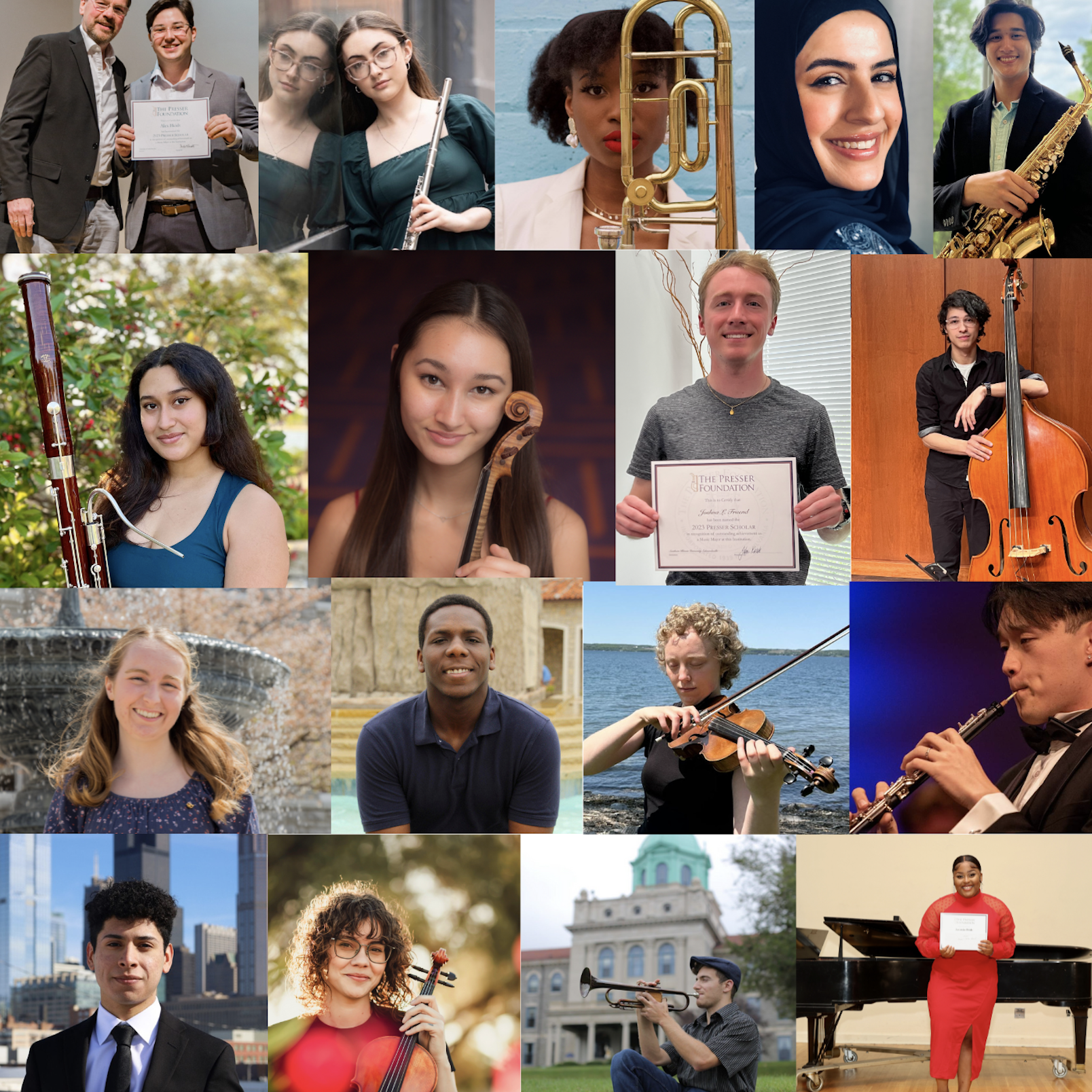During the 2023-24 year, The Presser Foundation Undergraduate Scholar Award program has undergone a “fundamental realignment,” a term used by Scholar Award Committee Chair Dr. Mark Wait to describe how the changes made to the program itself and its overall process.
One of those changes is a retooling of what information the Foundation asks for. Previously, the focus was on the institution and its resources. For example, schools that applied to the program for the first time and schools that were evaluated (which happens every five years) were asked to share how many practice rooms their respective institution has, the number of performance facilities, the amount of aid given to music students, music holdings in the library, etc. With these questions, the Committee assessed the schools and their respective music departments, thus focusing on the music programs rather than the students receiving the Award.
With the implemented changes, the Foundation is shifting the focus from the institution to the student. While schools will still be selected based on the quality of their music program, they will not be asked to include information about their facilities, library holdings, or other details about the program. At this time, newly added schools are accredited with the National Association of Schools of Music (NASM), which asks those questions during its accreditation and review processes.
Within the new Nomination Form, the Foundation asks open ended questions about the student, in addition to their concentration/major, GPA, and demographic information which is optional to provide:
- Musical and Academic Excellence: How has the Nominated Student achieved a high level of musical and academic excellence?
- Leadership: How has the Nominated Student demonstrated leadership and impact through formal or informal roles within the music program, institution, and/or community?
- Inclusive Community: How has the Nominated Student contributed to an inclusive community?
Nomination forms were due on December 1, 2023 and the Foundation has been incredibly impressed by the students who were presented for consideration and confirmed as a recipient by the Foundation at its January Scholar Award Committee meeting.
Take Emerald Lewis of Alabama State University (ASU). A double major with a BA in Music and a BME, Emerald will graduate summa cum laude as a clarinetist after being selected to participate in special masterclasses, as President of the Collegiate National Association of Music Educators at ASU, as a peer tutor for younger music students entering ASU, and as a volunteer in many of the HBCU’s music programs and an after school lesson program for children from lower socioeconomic backgrounds. She exemplifies musical and academic excellence, leadership, and an inclusive nature.
Or Zeina Mvemba of Appalachian State University. A non-traditional Music Therapy student, Zeina has not only developed her voice abilities but has also learned guitar and piano. She performs in showcases and has written her own songs while also serving as a music scholar at a local church and providing case management services to families of children with disabilities. As she shared, “I constantly think about what it means to provide equitable access to music therapy services and how to promote inclusivity within my future clinical practice. In each of my courses, I seek out research and clinical experiences to learn how to engage in a culturally centered theoretical approach within the mental health field.”
Or Oscar Haro, a Music Education with an emphasis in trumpet at the University of Kansas (KU). Oscar was selected as a Multi-Cultural Scholar and has been selected for the KU Wind Ensemble, KU Symphony Orchestra, KU Marching Band, KU Trumpet Ensemble and Chamber groups. He has also been the sole undergraduate student to represent the School of Music in the recent Dean’s Search Committee and frequently mentors young students, whether they be in junior high, high school, or younger undergraduate students at KU.
These are only three of the hundreds of nominated students. Each and every student is equally creative and committed to being inclusive and thoughtful leaders in their schools, communities, and careers. The Foundation is eager to share more stories about them and their incredible efforts.
In the hands of these students, the future of music and the music industry is bright.








